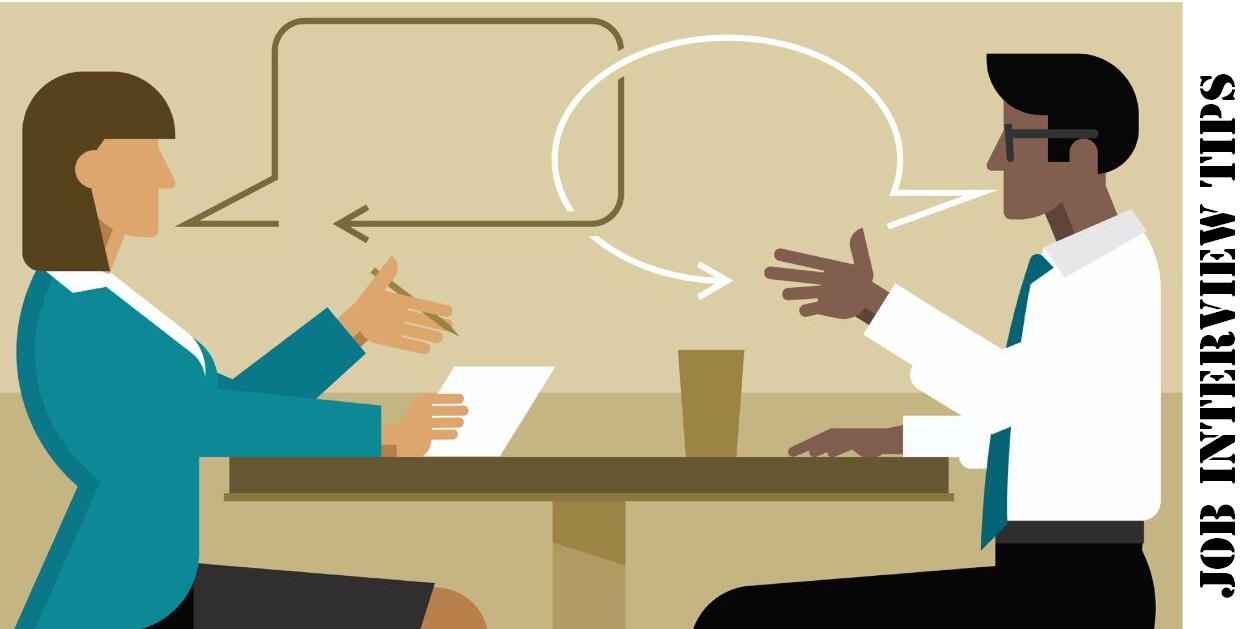
To make a good impression on interview day, use these tips:
- Get there on time. Try to schedule several interviews within the same area of town and time frame to avoid wasted time in excessive travel. Get directions online or ask fro directions from the receptionist to be sure you know how to get to the interview and how long traveling to the interview will take. Allow plenty of time for traffic or other problems and plan on arriving for the interview 5 to 10 minutes early.
- Check your appearance. Arrive early enough to slip into a restroom and correct any grooming problems your travel may have caused, such as wind-blown hair. You should be surprised how many people go into the interview with grooming problems such as messed-up hair or smudged lipstick on their teeth. Use a breath mint or gum just to be on the safe side. Do not spray on perfume, cologne, or hair spray right before the interview because many people are sensitive to chemicals and scents.
- Use appropriate waiting-room behavior. As you wait for the interview to begin, keep in mind that it’s important to relax and to look relaxed. Occupy yourself with something businesslike. For example, you could review your notes on questions you might like to ask in the interview, key skills you want to present, or other interview details. Bring a work-related magazine to read or pick one up in the reception area. The waiting room may also have publications from the organization itself that you may not have seen yet. You could also use this time to update your daily schedule.
- Be prepared if the interview is late. Hope that it happens. If you arrive promptly but have to wait past the appointed time, that puts the interviewer in a “Gee, I’m sorry, I owe you one” frame of mind. If the interview is 15 minutes late, approach the office manager or administrative assistant and say something like: “I have an appointment to keep yet today. Do you think it will be much longer before the interviewer will be free?” Be nice, but don’t act as though you can sit around all day, either. If you have to wait more than 25 minutes beyond the scheduled time, you may want to ask to reschedule the interview at a better time. Say it is no problem for you and you understand things do come up. Besides, you say, you want to be sure Mr. or Ms. So-and-So doesn’t feel rushed when he or she sees you. Set up the new time, accept any apology with a smile, and be on your way. When you do come back for your interview, the odds are that the interviewer will apologize – and treat you very well indeed.
- Be particular about your dress and appearance. How you dress and groom can create a big negative or positive impression, especially during the first few seconds of an interview. With so many options in styles, colors, and other factors, determining the correct approach can get quite complex. To avoid the complexity, follow this simple rule: Dress and groom like the interviewer is likely to be dressed and groomed, but just a bit better.
- Give a firm handshake and maintain good eye contact. If the employer offers his or her hand, give a firm (but not to firm) handshake as you smile. As ridiculous as it sounds, a little practice helps. Avoid staring, but do look at the interview when either of you is speaking. It will help you concentrate on what is being said and indicate to the employer that you are listening closely and have good social skills.
- Act interested. When you are sitting, lean slightly forward in your chair and keep your head up, looking directly at the interviewer. This stance helps you look interested and alert.
Eliminate annoying behaviors. Try to eliminate any distracting movements or mannerisms. Listen to yourself and you may notice that you say “aaahhh” or “ummmmm” frequently or say “you know what I mean?” over and over again, or use other repetitive words or phrases. You may hardly be aware of doing this, but do watch for it. Ask friends or family for help pinpointing these behaviors.
Pay attention to your voice. If you are naturally soft-spoken, work on increasing your volume slightly. Listen to news announcers and other professional speakers who are good models for volume ,speed, and voice tone. I, for example, have a fairly deep voice. I have learned to change my intonation while doing presentations so that everyone doesn’t go to sleep. Your voice and delivery will improve as you gain experience and conduct more interview. - Use the interviewer’s formal name as often as possible. Do this particularly in the early part of the interview and again when you are ending it. Do not call the interviewer by his or her first name unless the interviewer suggests otherwise.
- Play the chitchat game for awhile. Interviewers often comment on the weather, ask if you had trouble getting there, or make some other common opening. Be friendly and make a few appropriate comments. Do not push your way into the business of your visit too early because these informal openings are standard measures of your socialization skills. Smile. It’s nonverbal, and people will respond more favorably to you if you smile at them.
- Comment on something personal in the interviewer’s office. “I love your office! Did you decorate it yourself?” or “I noticed the sailboat. Do you sail?” or “Your office manger is great! How long has he been here?” The idea here is to express interest in something that interests the employer and encourage her or him to speak about it. This kind of interest is a compliment if your enthusiasm shows. This tactic can also provide you the opportunity to share something you have in common, so try to pick a topic you know something about.
Ask some opening questions. As soon as you have completed the necessary pleasant chitchat, be prepared to guide the interview in the direction you wish it to go. This process can happen within a minute of your first greeting, but is more likely to take up to five minutes.

